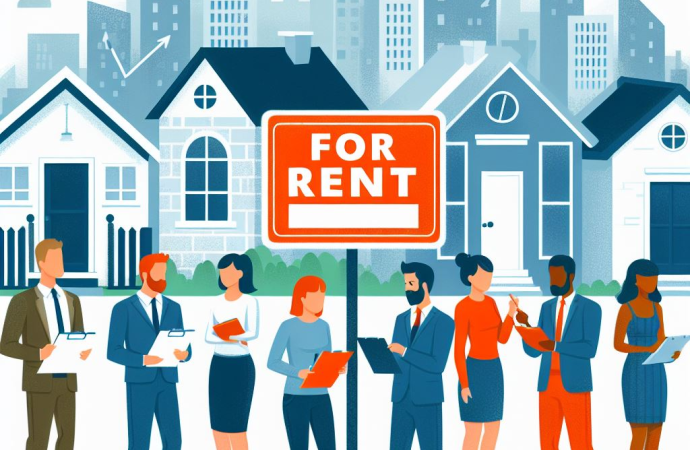Introduction Meet John Doe, a seasoned property manager with over a decade of experience in the real estate industry. John has managed a diverse portfolio of properties, from single-family homes to large apartment complexes. His wealth of experience has equipped him with a deep understanding of the rental business, and he’s here to share his insights
Introduction
Meet John Doe, a seasoned property manager with over a decade of experience in the real estate industry. John has managed a diverse portfolio of properties, from single-family homes to large apartment complexes. His wealth of experience has equipped him with a deep understanding of the rental business, and he’s here to share his insights on managing rental properties effectively.
Understanding Your Responsibilities
As a landlord or property manager, it’s crucial to understand your responsibilities. This includes everything from maintaining the property to handling tenant issues.
Do: Regularly inspect and maintain your properties. This includes routine maintenance checks, addressing repair issues promptly, and ensuring the property meets safety standards. Regular inspections can help you catch potential issues before they become major problems, saving you time and money in the long run.
Don’t: Neglect your responsibilities or ignore tenant complaints. Ignoring issues can lead to bigger problems down the line and can damage your relationship with your tenants. It’s important to address tenant complaints promptly and professionally to maintain a good landlord-tenant relationship.
Selecting the Right Tenants
Choosing the right tenants can make or break your rental business.
Do: Conduct thorough background checks and interviews. This includes checking references, credit history, and employment status. A good tenant can be a valuable asset, reducing turnover and minimizing potential issues.
Don’t: Rush the tenant selection process. Taking the time to find the right tenant can save you a lot of trouble in the future. It’s better to have a vacant property for a little longer than to rush into a potentially problematic tenancy.

Picture by: Bing Designer
Setting the Right Rent Price
Setting the right rent price is a delicate balance.
Do: Research local market rates and consider your expenses. It’s important to price your property competitively while also covering your costs. Consider factors like location, property size, amenities, and the current state of the rental market when setting your rent price.
Don’t: Overprice your properties and risk vacancies. Vacant properties can quickly eat into your profits. While it’s important to cover your costs and make a profit, setting the rent too high can deter potential tenants and lead to longer vacancy periods.
Handling Security Deposits
Security deposits can be a contentious issue between landlords and tenants.
Do: Clearly outline the terms of the security deposit in the lease agreement. This includes the amount, what it covers, and the conditions for its return. Having clear terms can help prevent disputes down the line.
Don’t: Withhold the security deposit without valid reason. Doing so can lead to disputes and potential legal issues. Always provide a detailed breakdown of any deductions made from the security deposit.
Dealing with Evictions
Evictions are a last resort and can be a legal minefield.
Do: Follow the legal procedures for your area. This includes giving proper notice and having a valid reason for the eviction. Always consult with a legal professional to ensure you’re following the correct procedures.
Don’t: Attempt to evict a tenant without proper grounds or documentation. This can lead to legal repercussions. Evictions should always be a last resort, and it’s important to exhaust all other options before proceeding with an eviction.
Maintaining Good Tenant Relationships
A good relationship with your tenants can lead to long-term tenancies and fewer issues.
Do: Communicate openly and respond promptly to issues. Regular communication can help address issues before they become problems. It’s also important to respect your tenants’ privacy and only enter the property with proper notice and a valid reason.
Don’t: Ignore your tenants’ needs or concerns. This can lead to dissatisfaction and turnover. Always strive to address your tenants’ concerns in a timely and professional manner.
Table: Key Points for Managing Rental Properties
| Do’s | Don’ts |
|---|---|
| Regularly inspect and maintain your properties | Neglect your responsibilities or ignore tenant complaints |
| Conduct thorough background checks and interviews | Rush the tenant selection process |
| Research local market rates and consider your expenses | Overprice your properties and risk vacancies |
| Clearly outline the terms of the security deposit in the lease agreement | Withhold the security deposit without valid reason |
| Follow the legal procedures for your area when dealing with evictions | Attempt to evict a tenant without proper grounds or documentation |
| Communicate openly and respond promptly to issues | Ignore your tenants’ needs or concerns |
















